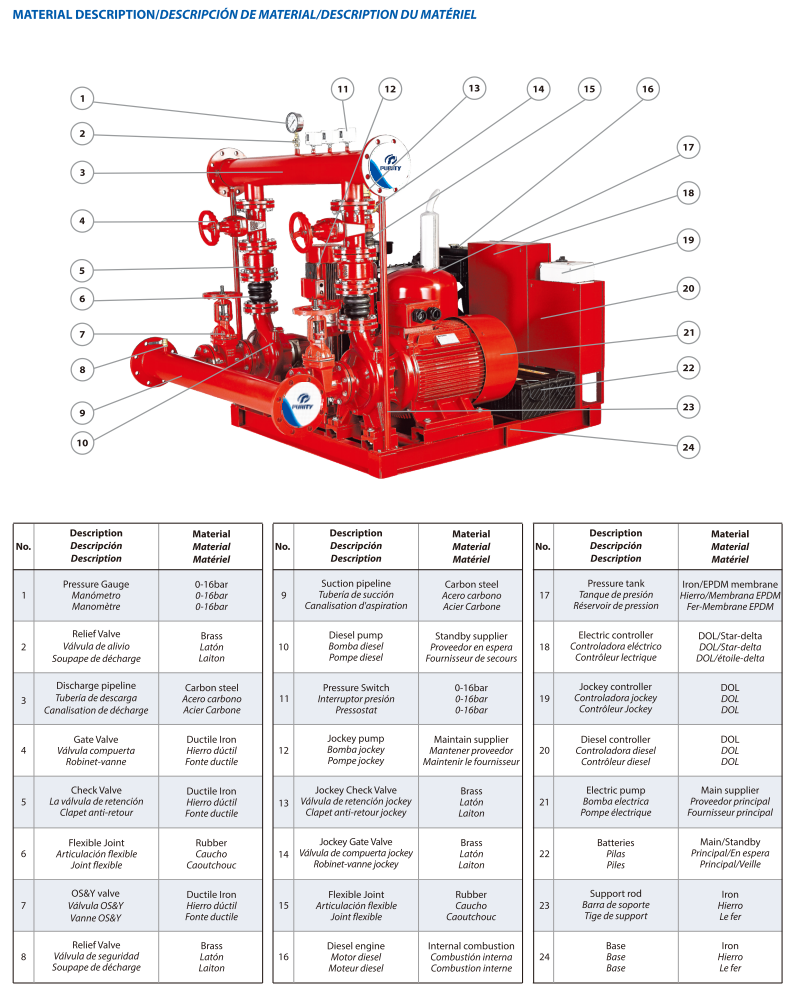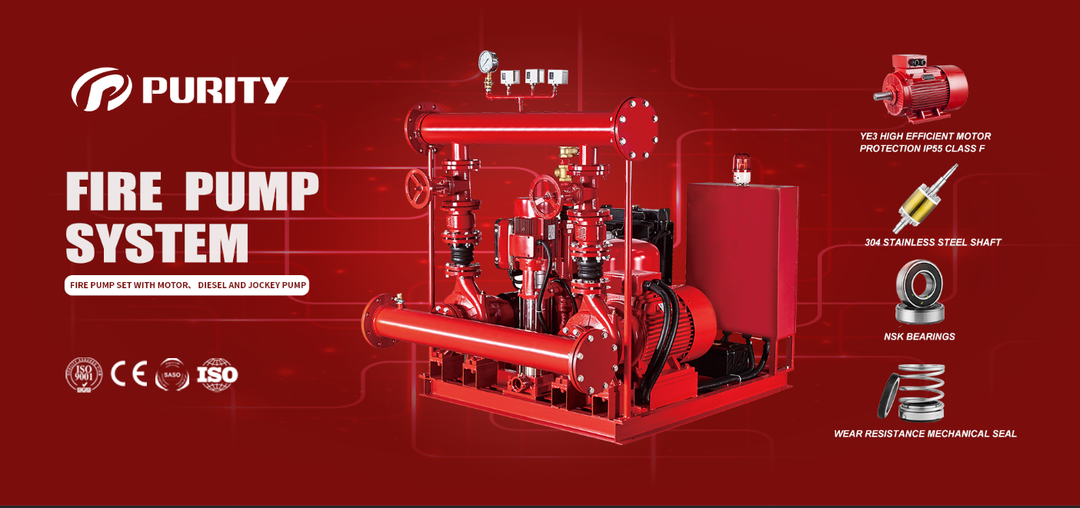When it comes to fire protection systems, the reliability of equipment is paramount. Diesel fire pumps are widely recognized for their robust performance in delivering high-pressure water supply during emergencies. However, a common question arises: do diesel fire pumps require a generator for operation? This article will explain this issue in detail below.
A diesel fire pump is a fire suppression device powered by a diesel engine, designed to provide an efficient and reliable water supply to combat fires. Unlike electric fire pumps, which depend on an external power source, diesel fire pumps are self-contained systems that can operate independently. This autonomy is one of the key advantages that make diesel engine fire pump invaluable in emergency situations.

Figure| Purity PEDJ Fire Pump Parts
However, there are scenarios where auxiliary power might be beneficial. For instance, if the diesel fire pump is part of a more extensive fire protection system that includes electrical components, such as alarms or automated controls, a generator may be needed to ensure that these systems function properly during a power outage.
Although diesel fire pumps can operate independently, there are circumstances in which a generator could be useful:
In complex fire protection setups, additional electrical systems may be required. A generator can ensure these systems remain functional during a power outage, providing complete fire protection.
In areas where access to fuel is limited or where operations are entirely off-grid, having a generator can help maintain all systems, including lighting and communications, alongside the diesel engine pump.
Some facilities choose to integrate generators as a precautionary measure, ensuring that all equipment, including the diesel fire pump, remains operational during prolonged outages or in emergencies.

Figure| Purity Fire Pump PEDJ
In summary, diesel fire pumps do not inherently require a generator to operate, as they rely on their diesel engines for power. This independence from electrical sources is a significant advantage in emergency situations. However, depending on the specific fire pump system and operational requirements, a generator may be beneficial for powering auxiliary electrical systems or providing backup support. Purity pump has significant advantages among its peers, and we hope to become your first choice. If you are interested, please contact us.